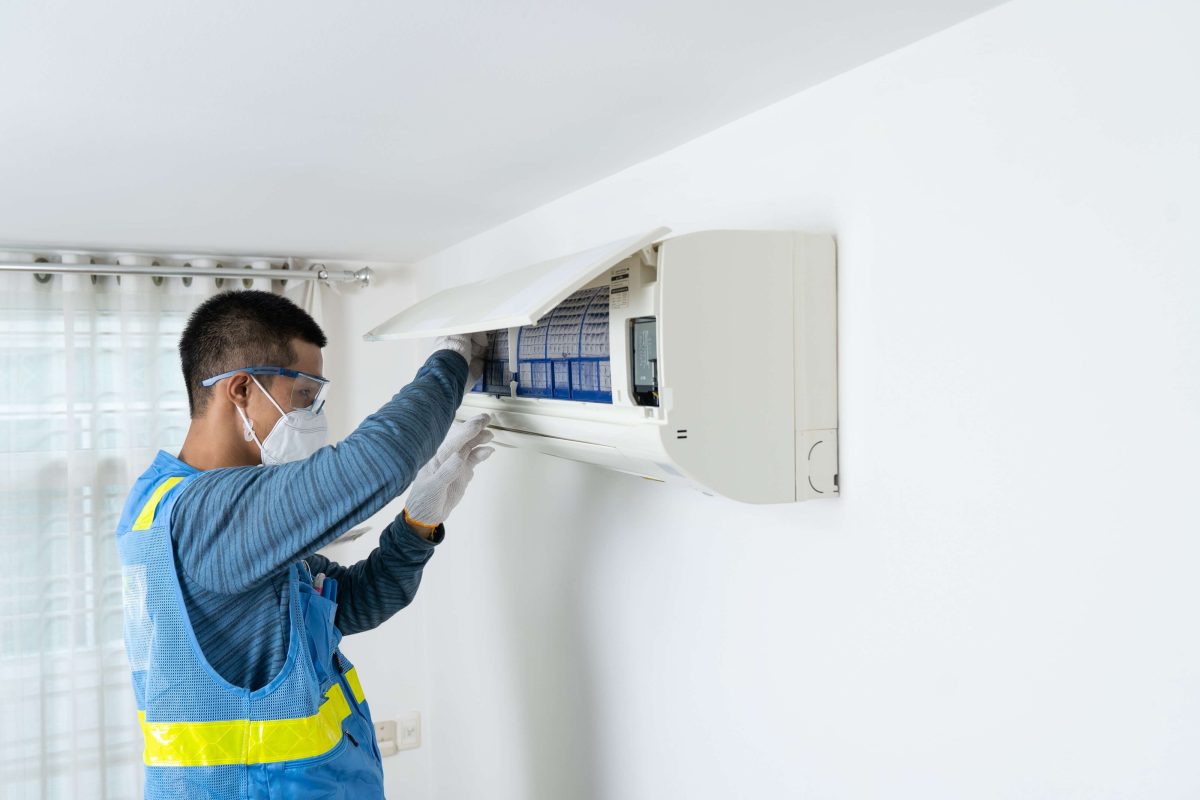Warning Signs of AC Breakdown You Shouldn’t Ignore

As UK summers grow hotter more households and businesses are relying on air conditioning. While AC units are becoming more common, many homeowners are still unfamiliar with how to maintain them properly. Just like a boiler in winter, your air conditioning system needs regular attention to ensure it runs efficiently. Spotting early warning signs can help prevent unexpected breakdowns and keep your home comfortable when temperatures rise.
Common Warning Signs of AC Trouble
- Strange Noises: Your air conditioner is usually quiet except for the low hum of the fan. If you suddenly hear rattling, clanking, hissing or buzzing, it’s a red flag.
For example, a high-pitched hissing sound often points to a refrigerant leak, while loud clanks or bangs can mean something loose or worn is hitting the fan or motor. These noises may begin subtly and gradually intensify. Don’t ignore them—they could signal anything from a minor misalignment to a serious compressor fault.
- Weak or Reduced Airflow: When you switch your air conditioning on, you expect a strong blast of cool air. If the airflow feels feeble or less powerful than usual, your system is struggling. A blocked air filter, dirty coils or a failing fan motor are common culprits.
In Britain, where some homes may have rarely cleaned vents or filters, a neglected filter often chokes airflow. This makes the aircon work harder (and less effectively) and can lead to overheating or freezing issues. Weak airflow is therefore a warning to clean or replace the filter and get the unit checked before a breakdown. - Unpleasant Odours: A healthy AC should smell fresh. But if you catch a musty, mouldy, or rotting odour when it switches on, likely mould or bacteria is growing inside the unit or ducts. Damp UK air conditioning units can harbour mould, especially if the drain is blocked. Worse smells—like a sweet chemical scent or burning—are even more serious.
A “sweet” or “exhaust-like” smell may indicate a refrigerant leak or electrical problem. If you ever notice an unusual odour—metallic, ozone, or burning—switch off the system and call an engineer immediately, as it could signal an electrical short or gas leak building up inside.
- Inconsistent Temperatures: Your AC should reach the set temperature (or get close to it) and keep the room evenly cool. If you notice some rooms are warmer than others or the unit can’t achieve the thermostat setting, that’s a warning.
For example, on a hot British afternoon, your lounge might stay baking while upstairs is cool, or vice versa. This may mean the unit is low on refrigerant or that there is a problem with the thermostat or control board. A refrigerant leak often causes the evaporator coil to freeze, so the AC blows lukewarm air instead of cold. Fixing small temperature problems early can prevent total failure when you need the cooling.
- Rising Energy Bills: Air conditioning already makes up a significant chunk of UK summer energy use. Research from the Chartered Institution of Building Services Engineers (CIBSE) reports that cooling in buildings accounts for almost 10% of UK electricity consumption during hot weather.
In other words, a working AC can noticeably bump up your bills. If you suddenly see a spike in your power bills when running the AC, it can be a sign that the system is inefficient or overworking. A clogged filter, dirty coils, or a failing compressor forces the unit to run longer to cool the same space. The result? Higher electricity usage and bills. With UK energy prices still high, this is a warning not to ignore. Regularly checking bills can alert you early: if you’re paying far more to get less cooling, schedule a service check. - Water Leaks or Moisture: Air conditioners naturally produce some condensation, but it should drain away unnoticed. If you spot pooling water, drips around the unit, or even frost/ice on the coils or pipes, it’s a serious warning. Often, leaks are due to a blocked condensate drain or tray—perhaps grit or slime has built up.
In cold UK summers, a frozen evaporator coil can thaw when the AC restarts, causing overflowing. A steady drip could also mean the internal float switch is stuck off, which prevents drainage. Left unchecked, water can damage walls, carpets or ceilings. Any new leak means “turn off the air conditioner because something’s wrong” inside, then call a professional to clear the blockage or fix the faulty part.
(Tip: Other signs to watch for include frequent cycling on and off or the unit failing to start at all. These are often related to the issues above—for instance, a clogged filter can cause short cycling.)
What To do If Your AC is Showing Warning Signs
Noticing one of these signs doesn’t always mean catastrophe is imminent, but it is your cue to act. Here are some practical steps for UK homeowners and small business owners:
- Check and Clean the Filter: A dirty filter is a common culprit for airflow and pressure problems. Turn off the system and open the front panel to inspect the filter. If it’s blocked with dust, vacuum it or replace it. In British homes where windows are often kept closed in summer, filters can clog quickly. Cleaning or changing the filter can sometimes restore airflow and efficiency.
- Examine Vents and Drains: Ensure that all air vents are open and unblocked by curtains or furniture. Locate the condensate drain pipe (usually a small white pipe leading outside)—if it’s dripping or blocked, try gently clearing it (a wet-dry vacuum can suck out any clog). For any external unit (outdoor compressor), clear leaves and debris around it. In UK yards or flats, plant growth or pests can obstruct airflow outside.
- Lower the Thermostat and Observe: If your AC isn’t cooling well, try setting the thermostat a bit lower and listening carefully. Sometimes an AC just needs a few more minutes to catch up on an extremely hot day. If lowering the temperature makes no difference or the system cuts out, it suggests an underlying issue (like low refrigerant or a failing motor).
- Switch It Off if Necessary: If you smell something electrical burning, see smoke, or hear very loud mechanical noises, turn off the unit to prevent damage or fire. Similarly, if water is pouring out or a coil is frozen, give the system a rest. Turning off the AC can prevent further harm to the equipment or your home while you arrange a fix.
- Call a Qualified Engineer: Many AC problems require a trained technician. Only a certified air conditioning installer (Gas Safe for gas heat pumps or F-Gas certified for refrigerant work) should handle refrigerant leaks or electrical faults.
- Schedule Regular Servicing: Prevention is better than a cure. Just as UK homeowners service boilers each year, you should book an air conditioning service at least annually (pre-summer is ideal). A routine check will catch small issues—loose screws, low refrigerant, dirty fins—before they become breakdowns.
- Maintain Good Ventilation: In the meantime, help the AC by keeping the space well-insulated from heat. Close curtains or blinds during hot afternoons (especially south-facing windows) and use fans to circulate air. In UK homes, a lot of heat comes from sunlight; blocking it reduces strain on the AC. This won’t fix an underlying fault, but it can ease the load if a repair is pending.
- Keep Records of Repairs: If you do have an issue fixed, note the date and cost. This can help identify recurring problems (a second repair might signal it’s time for replacement). Also, check if your AC warranty or service contract covers certain faults. Manufacturers often require proof of regular servicing to honour warranties.
Conclusion
Stay alert to any changes in how your air conditioner sounds, smells or cools. Small quirks today can become big headaches tomorrow. By taking prompt action on warning signs—cleaning filters, adjusting settings and calling in professionals—you’ll keep your home or office cool and avoid emergency breakdowns. Regular AC maintenance is the best policy. Think of it like MOT testing for cars: a yearly AC tune-up (before the warm months) catches wear-and-tear early, ensures peak efficiency and ultimately saves money and hassle in the long run.
Stay cool out there!









